#black american music month
Photo
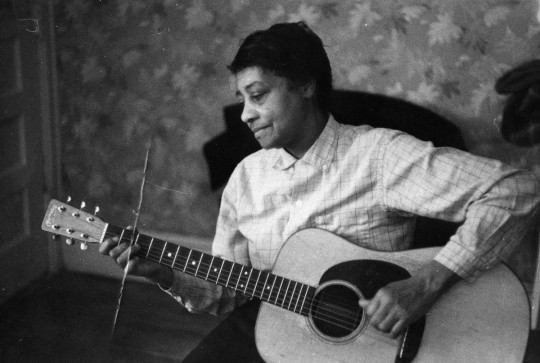
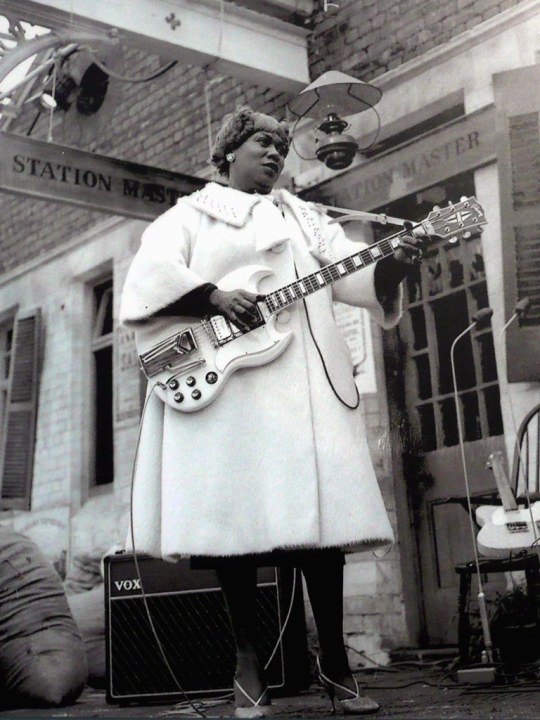

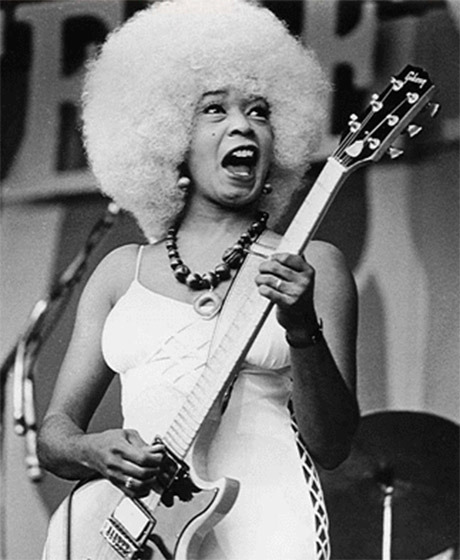
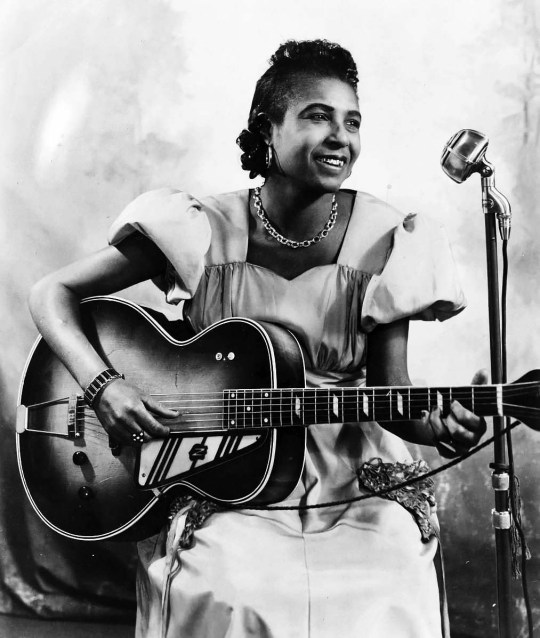

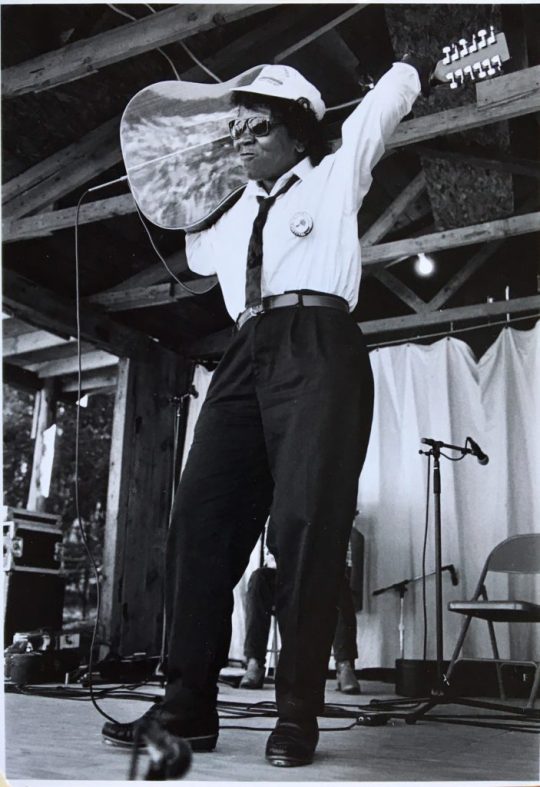
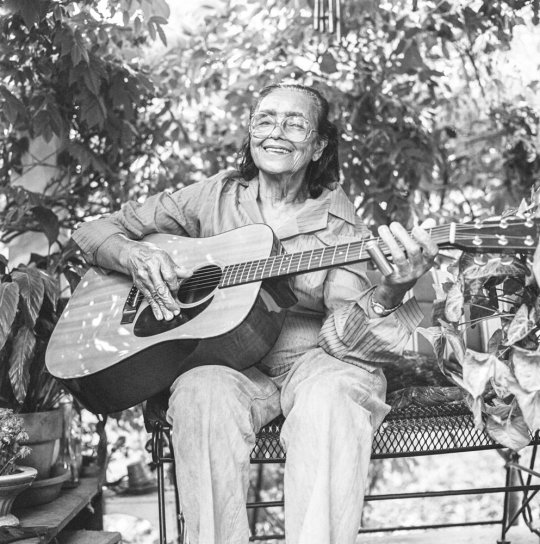
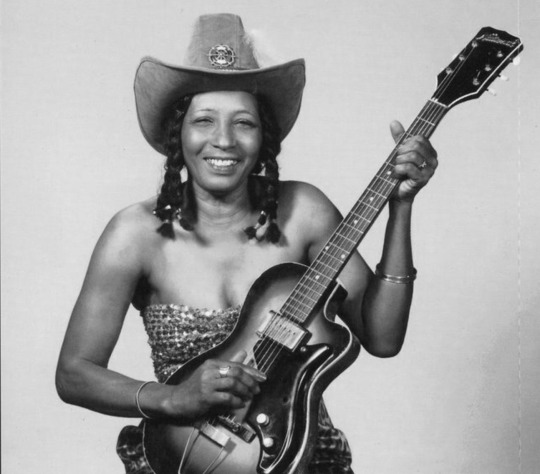
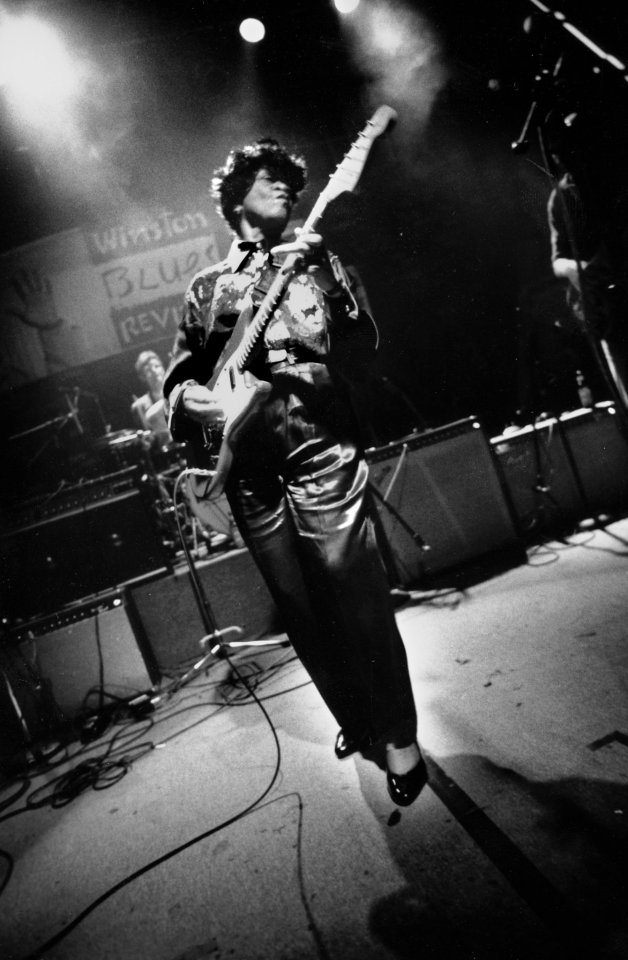
Black American Music Month
• ELIZABETH “LIBBA” COTTEN - She was a maid at 9, wrote a hit song at 11 — and won a Grammy at 93. Not to mention she was a self-taught left-handed guitarist who played a guitar strung for a right-handed player, but played it upside down. This position meant that she would play the bass lines with her fingers and the melody with her thumb.
• SISTER ROSETTA THARPE- The “Godmother of Rock & Roll.” She helped shape modern popular music, was one of the few Black female guitarists to ever find commercial success and the first artist to blend gospel with the secular.
• ODETTA HOLMES - Known as “The Voice of the Civil Rights Movement.” In 1963, she sang for the masses on the steps of the Lincoln Memorial at the March on Washington. Her musical repertoire consisted largely of American folk music, blues, jazz, and spirituals.
• PEGGY JONES - Nicknamed “Lady Bo” played rhythm guitar in Bo Diddley's band in the late 1950s and early 1960s, becoming one of the first (perhaps the first) female rock guitarists in a highly visible rock band. Sometimes called the “Queen Mother of Guitar.”
• LIZZIE “MEMPHIS MINNIE” DOUGLAS - Known as the “Queen of the Blues,” was a singer, guitarist, and songwriter. Her title stems from her legacy of successfully recording music across four decades as well as being the lone female voice in a male dominated blues scene.
• NORMA JEAN WOFFORD - Nicknamed “The Duchess” by Bo Diddley, she was the second female guitarist in Diddley's backing band.
• ALGIA MAE HINTON - She was widely recognized as a master picker and buckdancer in the Piedmont styles. She would often play her guitar behind her head while buck dancing.
• ETTA BAKER - She was a Piedmont blues/folk guitarist and singer who began playing the guitar at age 3. Taught by her father, long-time Piedmont player Boone Reid, Etta played 6-string and 12-string acoustic guitar, and 5-string banjo. She was a master of the blues guitar style that became popular in the southern piedmont after the turn of the century.
• JESSIE MAE HEMPHILL - A legend of hill country blues guitar. She grew up in a lineage of familial fife-and-drums bands from northern Mississippi, rose to popularity in the mid-1980s and had a fruitful career during which she performed around the globe, traveling mostly on her own. She played in open tunings and, having started as a drummer, had a percussive guitar style that included slapping and banging the instrument. She would also tie a tambourine around her calf, which, together with her strumming-and-drumming guitar work, gave her performance the sound of a one-woman-band.
• BEVERLY “GUITAR” WATKINS - One part soul singer, one part rockin' roadhouse mama, and one part gifted songwriter. She's been chronically under-recorded for a woman with her résumé, performing with the likes of James Brown, Ray Charles and Otis Redding. She didn’t record her first album until she was 60. Her blistering licks on a 1962 red Fender Mustang earned her the well-deserved nickname “Guitar.” She gon’ put on a show:
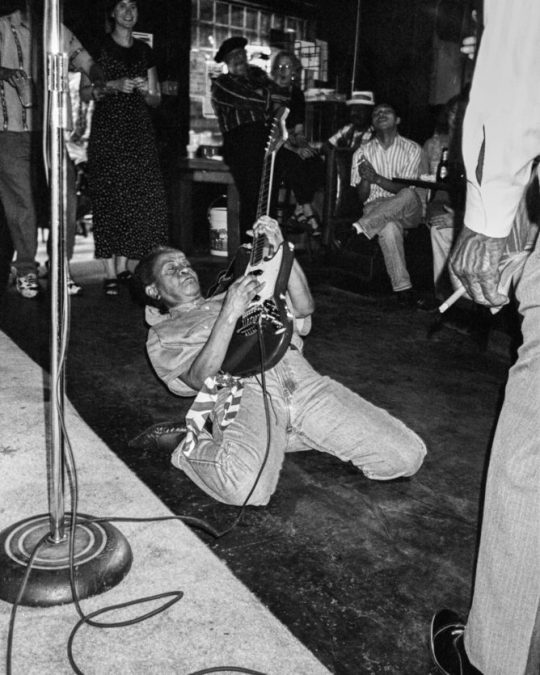
One more for good measure:
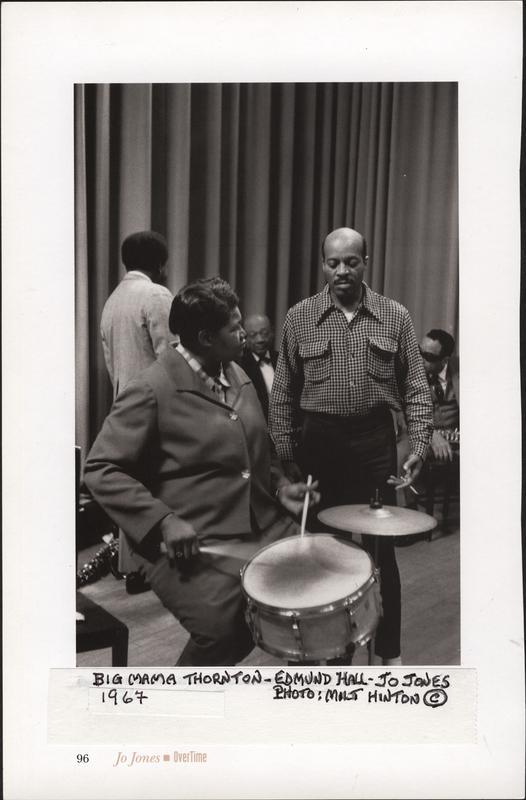

• WILLIE MAE “BIG MAMA” THORNTON - Also referred to as “The Godmother of Rock & Roll.” She was a blues singer, songwriter, self-taught drummer, and harmonica player. She was the first to record "Hound Dog", in 1952, which became her biggest hit, staying seven weeks at number one on the Billboard R&B chart in 1953 and selling almost two million copies. She also helped to shape the sound and style of “Texas-blues,” an evolving blues sub-genre known to incorporate swing and big band elements.
#black american music month#elizabeth cotten#elizabeth libba cotten#sister rosetta tharpe#odetta holmes#peggy jones#memphis minnie#norma jean wofford#algia mae hinton#etta baker#jessie mae hemphill#beverly guitar watkins#big mama thornton#black american musicians
1K notes
·
View notes
Text
I’m so tired of just being “African American”


When I really think about it, I’m so tired of it. When people think about African Americans— even when African Americans think about ourselves, what’s the first thing that comes to mind? Slavery. Discrimination. Pain. Endurance. Why do WE have the be the face of pain? Our people’s culture is NOT pain. Our culture is NOT slavery. Our culture is NOT just rebellion. Our culture is NOT facing racism. We are so much more than that. When you learn about African Americans it’s never about our music, our inventions, our food, our style, our way of life. It’s always about being at the end of the stick. We were never taught the BEAUTY of African Americans. Only the worse. I know because of what we experienced, IS a big part of our culture, but come on. Social injustice isn’t the only thing we consist of. Like I said, I know it’s important to be taught. Im just tired of always the “inferiority” being taught about us and not anything else’s beyond that.
I also feel like that’s part of a reason why people are so comfortable with just constantly taking from us. Taking from our culture. Because point one, they’re ignorant. And point two all there really is to “African Americans” if slavery and discrimination.
Who are we? Who are African Americans outside of just being the face of social injustice. The short end of the stick. I know some people may make a face while reading this, but it’s just how I feel. I am proud of my people and proud of what we fought for. How we did it. And how far we have come. It’s understanding of, if you’re African American, who are you to yourself? Who are your people to you? And if you’re not African American it’s an understanding of who are we to you? And on neither side, should it just be the face of injustice.
- I dare to mention that I’m a little bit afraid how people may feel about this. But I only hope to find people who agree, and perhaps even put a thought or two in the heads of the ones that don’t.
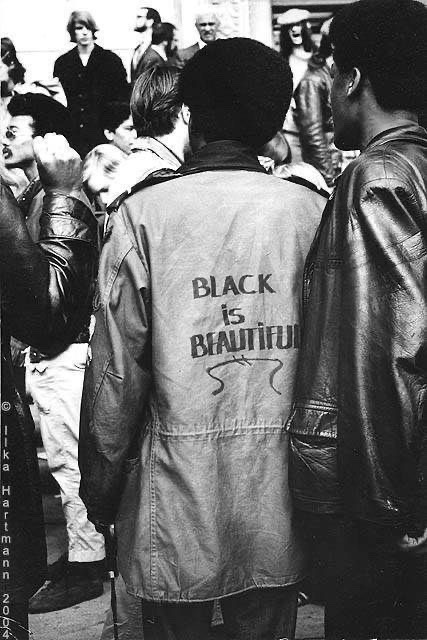

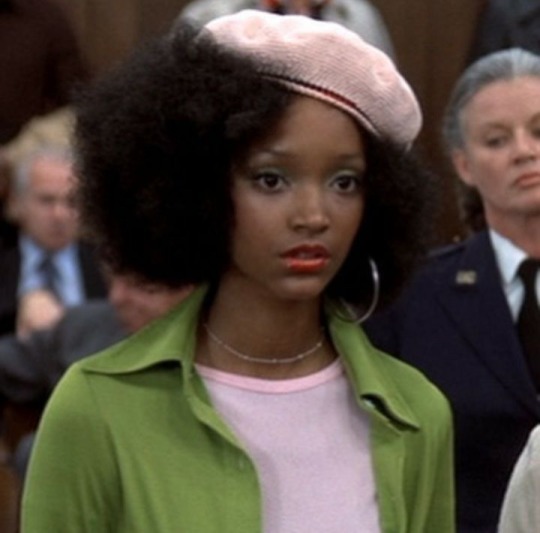
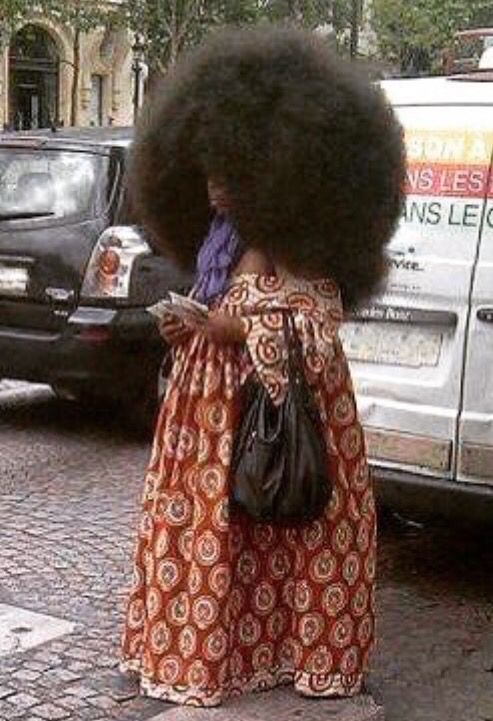
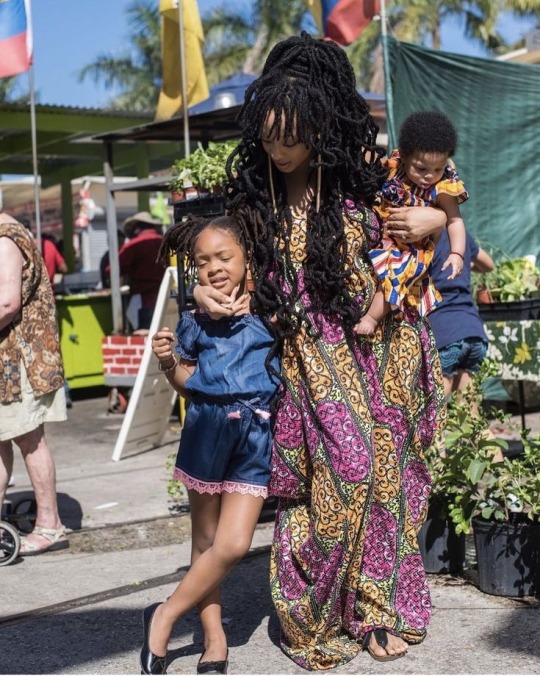



#blacklivesmatter#black history#black history month#x black reader#black heritage#blm#african american#soulaan#soul music#soul#soul food#black people#black woman#kinky hair#culture#life#black community#black beauty#soft black girls#soft black women#black femininity#black masculinity#juneteenth#afro#natrual#curly hair#coily hair#black culture#black man#black is beautiful
65 notes
·
View notes
Text
Source: Aranivah | Links
#cumbia#black history month#afro latino representation#afro latino#colombian music#cumbia colombiana#black lives matter#black history is american history#indigenous people#indigenous lives matter#indigenous roots#afro latino history#mexican culture#mexican music#mexican american#black brown unity#bipoc representation#bipoc lives matter#bipoc
227 notes
·
View notes
Text
Celebrating Black Queer Icons:
Willmer "Little Axe" Broadnax
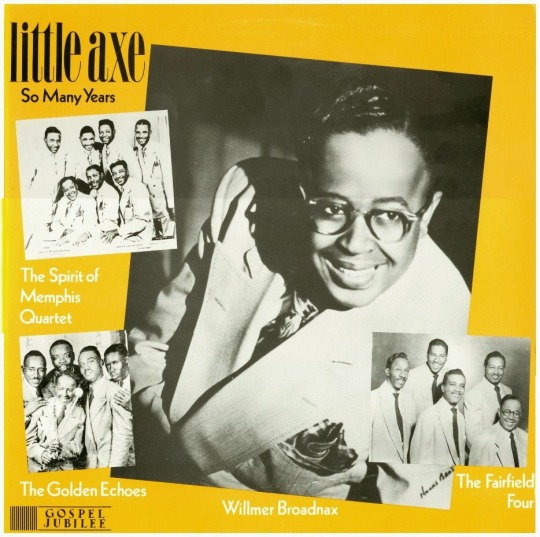
youtube
youtube
Willmer "Little Axe" Broadnax was born December 28, 1916 in Houston, Texas to parents William Broadnax and Gussie Frazier. Broadnax was an American hard gospel quartet singer that gained widespread popularity during the Golden Age of Traditional Black Gospel (1940s/50s). He received the nickname Little Axe from his short stature and as a companion to his brother, William "Big Axe" Broadnax, a popular baritone. By the time of the 1930s census Broadnax was living with his mother, brother, step-father Augustus Flowers, and step-sister Amartha Broadnax*. Broadnax began his career in gospel during his teen years, alongside his brother William. In the 1930s the Broadnax brothers joined the St Paul Gospel Singers in Houston, TX. The Broadnax brothers would later move to Los Angeles and join the Southern Gospel Singers. The group did not tour, and only preformed on weekends. The Broadnax brothers eventually broke off and formed their own quartet, The Golden Echoes. At some point Broadnax's brother, William, left the group and moved to Atlanta, GA where he joined The Five Trumpets. Broadnax stayed on as the lead of this iteration of the Echoes until they disbanded in 1949, after Specialty Records label chief, Art Rupe, decided to drop the group. The Golden Echoes only made a single recording with the label. Pianist Willie Love would go on to say "Little Axe couldn't sing low, because he had a relatively high voice. It wasnt falsetto, it was naturally high. So somebody had to sing the bottom.". Broadnax and the baritone Paul Foster sometimes created the illusion of a multi-octave singer together. In 1950 Broadnax joined The Spirit of Memphis Quartet, recording for King Records, and appearing with them until at least 1952. He would go on to join The Fairfield Four, shortly after, and in the early 1960s served as one of Archie Brownlee's replacements in the Five Blind Boys of Mississippi. Broadnax lead another iteration of The Golden Echoes until 1965, releasing singles through Peacock Records. As gospel's popularity waned Broadnax decided to retire from touring. Broadnax continued to perform and record in some capacity, most notably recording with the Blind Boys in the 1970s and 80s. On May 23, 1992, in Philidelphia, PA, Broadnax was killed by his lover, Lavina Richardson. After witnessing Richardson in a vehicle with another man, Broadnax pursued the vehicle, bumping into it several times with his own. At some point both vehicles stopped and Broadnax pulled Richardson from her vehicle and threatened her with a knife. A bystander disarmed Broadnax, after which Richardson picked up the knife and stabbed him three times. Broadnax died several days later, on June 1st, 1992, as a result of the injuries. Richardson was later convicted of manslaughter. After Broadnax's death it was publicly discovered that he had been assigned female at birth, which created a notable stir in the gospel community. Many claimed "they always knew" but there is no evidence to support anyone other than Broadnax's brother and other close family knew.
*This post by @ubleproject (The Untitled Black Lesbian Elder Project), which served as a source for me and Broadnax's wiki article, speculates that its possible Amartha is the deadname of the singer we know as Willmer "Little Axe" Broadnax, and that Amartha may have assumed the older brother's name to preform. In which case, Broadnax was born in Louisiana in 1922 to Frazier and Flowers. In the 1930 census Amartha's entry was corrected by hand to list Amartha as a girl. The census taker had initially listed Amartha as a boy, suggesting Amartha may have been presenting as such, at the time. Amartha is also, interestingly listed as Amartha Broadnax, despite being listed as Frazier and Flowers' biological child. There are little to no records of Amartha's later life.
I have two more planned, but not sure on the order I will be doing them. The last will probably be out in the beginning of March. After that I will be saving the rest of my list for October, when the US is having LGBT History Month, and the UK is having its Black History Month. I will start including cis icons as well, such as Bayard Rustin. As always corrections and suggestions are welcome and much desired.
#celebrating black queer icons#black history#black history month#black history is queer history#black history is american history#willmer broadnax#little axe#willmer little axe broadnax#gospel music#black gospel#traditional black gospel
101 notes
·
View notes
Text
https://www.kennedy-center.org/artists/w/wa-wn/marion-williams/
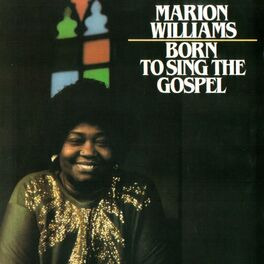
Marion Williams (1927-1994) was a wonderful gospel singer whose legacy lives on in her beautiful, inspiring music
youtube
#gospel singer#underrated#unsung hero#african american#african america history#black history#black history month#black history matters#black lives matter#blm#Youtube#music#gospel#gospel songs#love
6 notes
·
View notes
Text
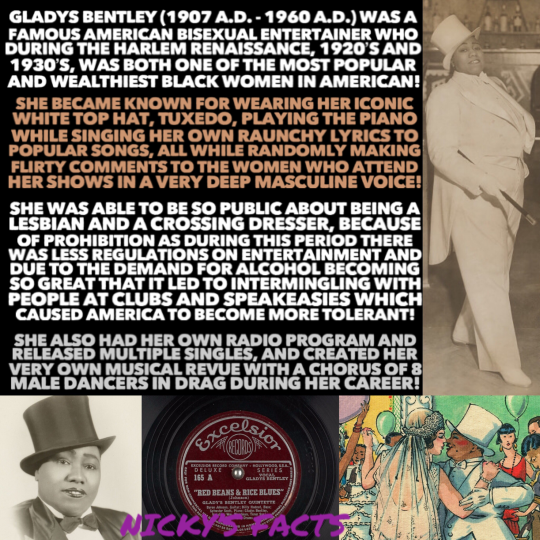
Gladys Bentley was a black plus sized bisexual / lesbian baddie before it was cool!🤵🏾♀️🏳️🌈
🎶🎩🎶
#history#gladys bentley#historical figures#harlem renaissance#united states#lgbt#african american history#musician#black girl magic#bisexual#body positive#butch lesbian#music history#black history month#lesbian#black women#womens history#cross dressing#self love#entertainer#historical women#lgbt history#black love#black beauty#coquette#american history#lesbian pride#nickys facts
25 notes
·
View notes
Text
Grand Belial's Key Information In The Metal Archives




[MUSIC IN SOUNDCLOUD]
Country Origin: United States
Location: Oakton, Virginia
Status: Active
Formed In: 1992
Years Active: 1992-1993, 1993-2006, 2009-present
Genre: Black Metal
Themes: Anti-Christianity, Antisemitism, Blasphemy
Current Label: Weltenfeind
Split: Satan's Is Metal's Master / Sperm Of The Antichrist, Hobo Of Aramaic Tongues / Le Royaume Maudit, Weltenfeind
Demo: Goat Of A Thousand Young, Triumph Of The Hordes
EP: A Witness To The Regicide, The Tricifixion Of Swine, On A Mule Rides The Swindler
Compilation: Castrate The Redeemer, Goat Of A Thousand Young / Triumph Of The Hordes
Full-Leght: Mocking The Philanthropist, Judeobeast Assassination, Kosherat, Kohanic Charmers
—Information found The Metal Archives
#spotify#black metal#death metal#music#grand belial's key#black metal history month#black metal band#american black metal#notyinnina#yinnina
5 notes
·
View notes
Text
What Was Life Like For Black Americans In The 90s?
youtube
What was it like being black in the 1990s? Black life in the 1990s was at times beautiful, at times scary, and always complicated. The continued rise of black celebrities and culture did not translate into a rise in the black condition. What changed? What stayed the same? In this episode of Lexual Does The 90s, we’ll dive into Black Life in Clinton's America.
#intelexual media#lexual#lexual media#elexusjionde#elexus jionde#90s aesthetic#90s movies#90s#90s music#black american#black history#black americans#Youtube#neosoul#black literature#black movies#black tv shows#riot#police brutality#LA riots#black nationalism#OJ Simpson#american history#clarence thomas#Environmental Racism#naacp#mike tyson#afrocentrism#black history month#magic johnson
2 notes
·
View notes
Text
Pastor Shirley Caesar, Dionne Warwick, Yolanda Adams, Chaka Khan, Gladys Knight, Valerie Simpson and Patti LaBelle
#Oprah’s Legends Ball#Shirley Caesar#Dionne Warwick#Yolanda Adams#Chaka Khan#Gladys Knight#Valerie Simpson#Patti LaBelle#SANGERS#Gospel music#Black Music#Black American music#Black Music Month#I want the unedited version of this Gospel pass the mic!
16 notes
·
View notes
Photo

Smithsonian Folkways Black History Month playlist presents a provocative sound collage of the African American experience that captures the groups earliest history on the African continent into the Black Power period of the 1970s. (via A Black History Sound Collage, Documenting The Progression of Black American History | Smithsonian Folkways Recordings)
#Blackness#America#music#African American#Smithsonian Folkways#playlist#Black History Month#Maya Cunningham#collage#sound collage#arts activism
2 notes
·
View notes
Text
youtube
Juvenile's Tiny Desk Concert
Now that's how you conclude Black Music Month. Juve with Fresh, Jon, Trombone Shorty, the Louisiana Philharmonic. Mannn. He performed the exact setlist I was anticipating. But he left out "Nolia Clap" 😩. Smooth transition into "Hot Girl" but....😩😩😩
I'm so glad he did this concert. Juve went from tweeting "WTF is a tiny desk" 😂 and "no" back in April after a fan tweeted NPR to get him on to taking his ass up there (after we explained it to him), giving the people what they wanted. Thank you.
#juvenile#tiny desk concert#npr tiny desk#mannie fresh#jon batiste#trombone shorty#louisiana philharmonic#black music month#black american music month#nola
83 notes
·
View notes
Text
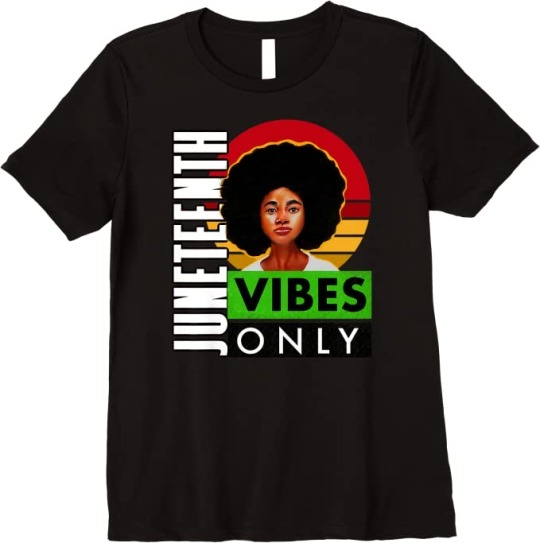




#black history#hbculove#black history month#black women#hbcu#blackgirlmagic#merch by amazon#juneteenth#1865#black girl magic#black excellence#black people#black hair#black american history#black lives matter#black culture#black tumblr#black is beautiful#black music#black beauty
2 notes
·
View notes
Text
Happy Black History Month
#black history#happy black history month#african america history#american history#music history#black americans
2 notes
·
View notes
Text
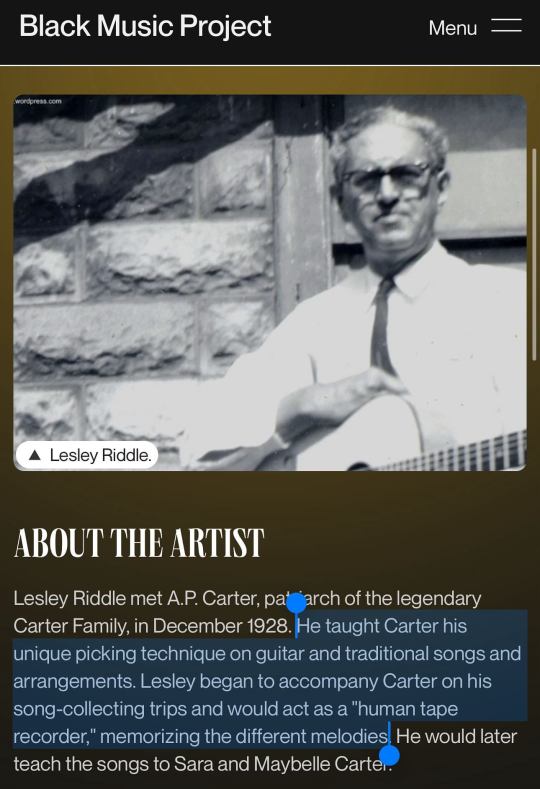

Pop culture is a portal. Here’s a historical FYI on *that* album title—which seems more intentional than one might think.
MYTH: The CARTER Family is called “The First Family of Country Music,” for “inventing” country harmonies and a guitar picking style now named after them that shifted the genre.
TRUTH: they learned that style from a Black man, Lesley Riddle, and took much of their music from Black and Mexican musicians and families. It’s now called the “Carter Lick,” not the Riddle Lick 🥴
#History#african american history#black history#culture#black history month#music history#country#country music#Carter family#Lesley riddle#History you weren’t taught at school
0 notes
Text
Black History Month 2024: Under Review
It appears that the 98th Edition of Black History Month is over. But guess what? Like years past the occasion is once a year, but the references to Black History in general will continue to tell the truth, expose lies, and expose those who feel that it should not be taught. All the time, folks still say, well, Black History is American History……” That is a lie. It is a lie just to make those feel…
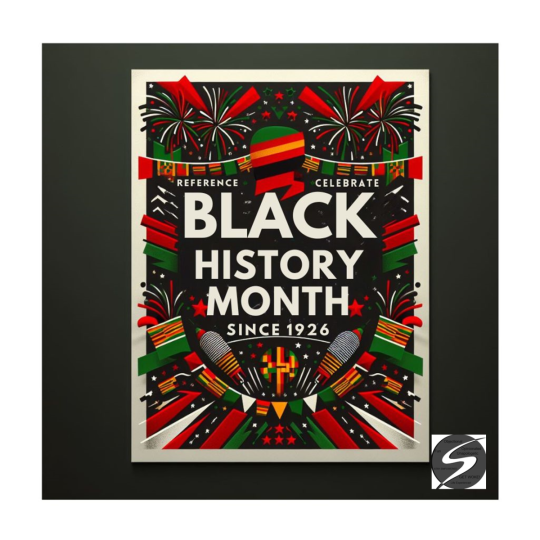
View On WordPress
#African-Americans#Andra Day#Banjo#Beyonce#Black History is world History#Black History Month#Country Music#Lift Every Voice and Sing#Under Review
0 notes
Text
http://tee.pub/lic/wpOlas_0mVU
Celebrate African-American life and culture with Urban Life Apparel. This Teepublic store features almost 1000 original designs spotlighting iconic moments and figures in black history. From Harriet Tubman and Frederick Douglass to Barack Obama and Malcolm X, each illustration honors the strength and resilience of the African-American journey. Show your support for civil rights and racial justice in apparel featuring historic marches, sit-ins, and protests. Uplift today’s movements like Black Lives Matter in bold graphics that spark awareness. Made ethically in the USA, these quality t-shirts, hoodies, and accessories let you rep black culture and heritage with laidback style. At Urban Life Apparel, clothing meets conscience in the ongoing fight for equal rights. Here you’ll find unique designs that speak to the African-American experience – by and for the people. Wear art that inspires, empowers, and celebrates the rich history of African-Americans.
#black history#african american#black lives matter#black culture#black women#t-shirt#black history month#african american history#black history matters#black community#black power#black excellence#black music
0 notes